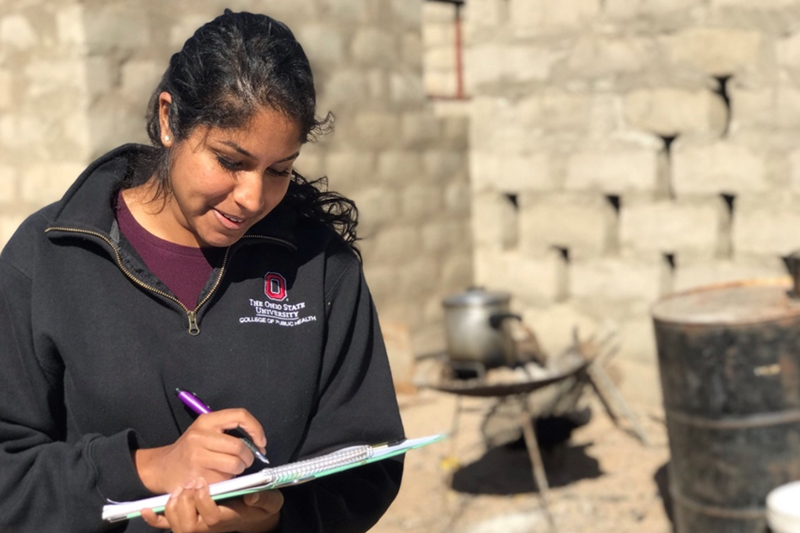
In 2019, GOHi was able to support Pallavi Oruganti, student in the College of Veterinary Medicine, through the college's Global Engagement Program travel award.
"The Global Engagement Travel Scholarship enhanced my experience in South Africa by providing the funding to cover expenses related to the travel and stay in-country," shared Oruganti. "With this support, much of the financial strain of traveling abroad was taken off, and thus I could focus on developing the research methods and a proposal."
Oruganti used her scholarship to apply One Health, veterinary medicine and public health methods to understand disease risk in a rural community in Mpumalaga. While there, her team also toured neighboring villages and farms to further understand cultural attitudes and the human-animal bond of this community.
"My project utilized social science methods (specifically ethnographic methods from anthropology) to investigate zoonotic disease risk factors in the community," explained Oruganti."
The main objective was to better understand how factors like gender could affect exposure risk to zoonotic pathogens causing acute febrile illnesses.
This project was conducted in collaboration with the Mnisi Community Programme (MCP) at the University of Pretoria Faculty of Veterinary Science.
The villages in the study area are unique in that they stand at a critical human-livestock-wildlife interface, with many villages and cattle grazing areas bordering wildlife game reserves.
This globally engaged research has been presented and published in internationally significant forums. To read about her research findings please visit The Lancet.